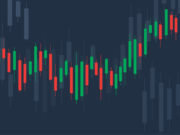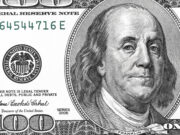New investors may have never heard of an “ETF” before. Meanwhile, there are many others who take part in the ownership of ETFs.
As Investopedia defines it, an ETF (Exchange-Traded Fund) is a type of security. Security? It is more or less a type of asset that comes with an associated price, allowing it to be easily bought and sold. ETFs specialize in tracking indexes, sectors, commodities, and various other assets.
What’s good to know for investors is you can buy one of (or many of) these bad boys right on the stock market, and just as you would when buying shares of normal stocks.
The price of an ETF’s shares change often throughout each day of trading. It may be important to note that it is not like mutual funds, which report one price at the end of the trading day. ETFs have proven to tend to be more cost-effective as opposed to mutual funds. The ETF is a type of fund that contains many underlying layers of assets, if you will, rather than one singular stock. An ETF is capable of being the owner of in fact thousands of stocks. These stocks can cross industry lines, and they can also stay within their own respective industries. Some ETFs focus strictly on U.S. prospects while others try to broaden their scope to a more global scale. While ETFs give investors the capability to gain as stock prices do their usual thing, they have some companies out there to thank for paying the dividends. ETF shareholders are guaranteed a profit and could even get a residual amount if the fund is liquidated.
ETFs are also more tax-efficient than let’s say, again, a mutual fund. **Dear Mutual Funds, I have nothing against you but have found you to make for an easy form of comparison to my tidbits on ETFs.**
There are several types of ETFs that you can invest in:
—- Industry ETFs — These in particular are in the business of tracking industries, such as banking, technology, and oil.
—- Bond ETFs (sounds cool, right?) — These ETFs tend to include those which are corporate, government, municipal, etc in nature.
—- Commodity ETFs — These ETFs would appeal to those looking to invest in other forms of assets such as gold, for example.
—- Inverse ETFs — These are the ETFs I don’t particularly care for, nor would I recommend one. You could even say that they cheat. What they essentially do, from what I’ve gathered, is sell and repurchase regular stocks at a lower price so that at the end of the day, they can earn gains from certain stock declines. I knew there had to be something about this that was shady.
—- Currency ETFs — These ETFs focus primarily on the investment in foreign currencies. A little more boring than the Inverses, but perhaps more honest at least.
The popularity of ETFs among investors has risen in the past years. New funds have been, and still are being created which can result, unfortunately, in small trading volumes for some with higher prospects. ETFs, however, do provide convenient and cost-effective visibility to a wide range of markets and various investment categories. In addition, they are also frequently wrongly viewed as sources of volatility in the markets. In spite of that, it appears very likely that the power and influence of certain ETFs is only going to continue to grow in the coming years. As time moves on, we hold our hopes on returning to that “sense of normalcy” in a post-COVID-19 world that we all can’t wait for. The financial recovery of not only many other important staples of our society, but of these damn boring ETFs — they can be pretty exciting though actually — certainly restores any hope that has been lost among investors. In spite of the pitfalls surrounding 2020 and the tragic mess of a pandemic that we’ve undergone, some of these ETFs are. And for some more finely-tuned positivity, here’s an interesting factoid to let stew in the ol’ noggin: There are five separate companies, as of today, with a nice chunk of $100 Billion dollars or more in ETF assets. They include:
— Black Rock — $2.117 Trillion
— Vanguard Group — $1.619 Trillion
— State Street Corp — $881 Billion
— Invesco Limited — $308 Billion
— Charles Schwab — $214 Billion
I wanted to do a top 5 or top 10 list, with just a small point or two about each, but realized that there were some big names to choose from that really know what they’re doing. Because of that fact, they’re red hot right now. And Vanguard Group is one of them. So, here are 3 separate Vanguard ETFs that certainly peak my interest:
Vanguard Financials ETF (VFH)
After a hellish 2020, the Vanguard Financial Sector has been showing off a little. Year to date, the ETF is up more than 28%. The fund holds an impressive 408 holdings, which are mostly banks. JP Morgan and Bank of America are both prominent examples. The continued economic recovery should only benefit investors in this ETF, due in part to a vote of confidence from the Fed, which plans on easing up restrictions on stock buybacks and the payout of dividends. Not to mention its super-low expense ratio of 0.1%.
Vanguard Real Estate ETF
To start, this gives investors a nice opportunity to invest in real estate without actually buying physical property. This particular ETFs main activity is investing in Real Estate Investment Trusts (REITs), which could be defined simply as mutual funds that invest in real estate rather than in stock. It has an expense ratio of just 0.12%, while also boasting 174 REITs in its portfolio. A portion of the portfolio was subject to negative exposure in some areas of the pandemic such as retail, office buildings, and hotels and resorts. But that’s all. Most of its largest holdings are insulated — that is, protected from any negative exposure. For example, its 10 largest holdings include REITs having to do with data centers, storage facilities… even cell tower properties. When push comes to shove, I think what Vanguard Real Estate’s investors enjoy the most is that Real Estate Investment Trusts end up being pretty easy money. If the dividends are there, you’ll get them. Fun fact: They’re legally required to pay 90% of their taxable income, in the form of dividends, to the shareholders.
Vanguard Health Care ETF (VHT)
My last but definitely not least choice of the three is Vangaurd’s Healthcare EFT. It invests in an index of 445 United States healthcare stocks, with a very low 0.1% expense ratio. It’s biggest focuses are in healthcare equipment (24%), pharmaceuticals (23.9%), and biotechnology (18.5% and one of the coolest classes to take, ever). And let’s not forget — Pfizer and Johnson & Johnson happen to be two of its top holdings. I don’t know what you’d call that — but I like what I’ve been reading. Let’s make money!
Should you invest in Vanguard Health Care ETF right now?
Before you consider buying Vanguard Health Care ETF, you'll want to see this.
Investing legend, Keith Kohl just revealed his #1 stock for 2022...
And it's not Vanguard Health Care ETF.
Jeff Bezos, Peter Thiel, and the Rockefellers are betting a colossal nine figures on this tiny company that trades publicly for $5.
Keith say’s he thinks investors will be able to turn a small $50 stake into $150,000.
Find that to be extraordinary?
Click here to watch his presentation, and decide for yourself...
But you have to act now, because a catalyst coming in a few weeks is set to take this company mainstream... And by then, it could be too late.
Click here to find out the name and ticker of Keith's #1 pick...













